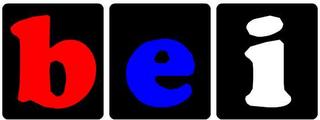US Students Show Improvement in International Mathematics and Science Assessment
U.S. Students Show Improvement in International Mathematics and Science Assessment
U.S. fourth- and eighth-graders score well above international average in 46-nation TIMSS study
America's fourth- and eighth-grade students significantly outperformed many of their international peers, scoring well above the international average in both mathematics and science, according to the latest results from the Trends in International Mathematics and Science Study (TIMSS). In addition, U.S. eighth-graders improved their scores compared to previous years (1999 and 1995), with gains across most student groups, including boys, girls, and minority students. Scores for U.S. fourth graders remained static in mathematics and science.
U.S. Secretary of Education Rod Paige expressed optimism with the TIMSS results, which measured students from up to 46 nations, including economically developed members of the Organization for Economic Co-operation and Development (OECD).
"Eighth-grade results from TIMSS confirm what we have seen domestically—that a greater emphasis on higher standards in the classroom leads to improved performance and a smaller achievement gap. However, the results also show that we have further to go, particularly in earlier grades, toward establishing a culture of excellence and achievement at all grade levels."
Paige noted that the TIMSS tests are closely linked to the curricula of the participating countries. "In that sense they are a good indicator of our schools' performance as well," he said. "We must remain committed to staying the course of reform to ensure that every student in every school has a real opportunity to learn."
The TIMSS results followed another international assessment released last week, the Program for International Student Achievement (PISA), which showed America's 15-year-olds performing below the international average in mathematics literacy and problem-solving. "Education does not happen in a vacuum, but in the world," Paige said. "We must redouble our efforts to prepare all of our students for a future that has never been more competitive and challenging. They must graduate from high school ready to succeed in college and in life."
The report on the U.S. TIMSS results, Highlights From the Trends in International Mathematics and Science Study (TIMSS) 2003, was released today by the Education Department's National Center for Education Statistics (NCES) in the Institute of Education Sciences. The international results from TIMSS were released today by the Amsterdam-based International Association for the Evaluation of Educational Achievement (IEA).
________________________



<< Home